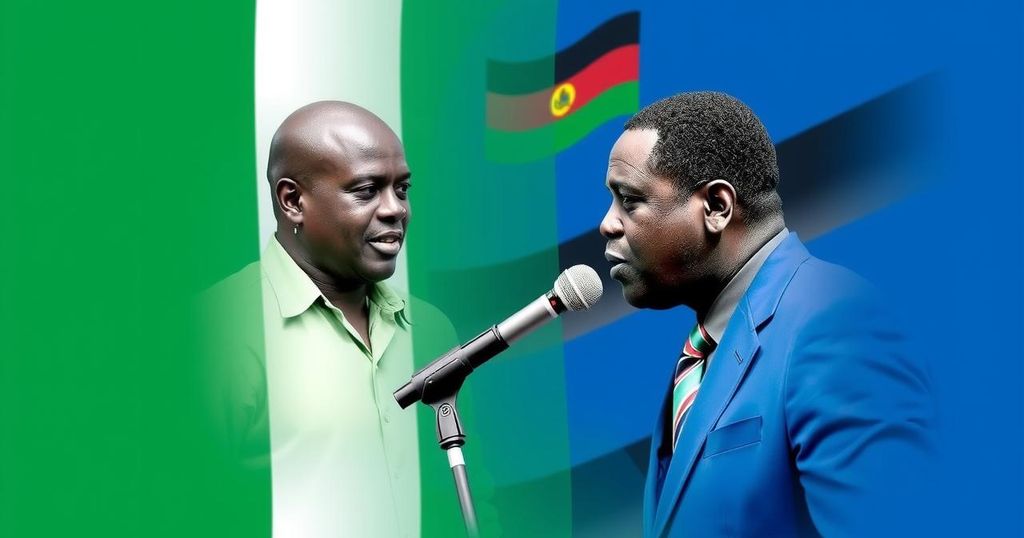Namibian Elections: SWAPO Faces Challenges Amidst Political Fragmentation
Namibia’s upcoming elections reflect significant political changes, with SWAPO facing declining support amidst a fragmented opposition. Former Vice President Netumbo Nandi-Ndaitwah aims to become the first female president, challenging opposition leader Panduleni Itula. These elections could reshape Namibia’s political future as the IPC and AR seek to emerge as strong contenders against the ruling party.
The upcoming presidential and parliamentary elections in Namibia, taking place on Wednesday, spotlight significant shifts in the political landscape, particularly for the long-established South West Africa People’s Organisation (SWAPO). Since gaining independence in 1990, SWAPO has experienced a marked decline in influence, highlighted by its loss of the two-thirds majority in the National Assembly during the 2019 elections. This decline reflects broader trends across Southern Africa, where longstanding ruling parties are struggling with diminishing support.
Amidst political fragmentation accentuated by the presence of 21 competing parties, SWAPO maintains a stronghold, especially in the populous northern regions. Political analysts suggest that the lack of a unified opposition coalition has contributed favorably to SWAPO’s sustained success. Political scientist Rui Tyitende observed that this fragmentation is tied more to personal rivalries than ideological divides.
Former Vice President Netumbo Nandi-Ndaitwah, aged 72, seeks to become Namibia’s first female president. Her platform includes commitments to job creation and addressing the country’s notorious unemployment rate. However, she faces competition from independent leader Panduleni Itula, whose past performance in capturing 30% of the vote from SWAPO’s former president marks him as a notable adversary, despite potential public backlash regarding his personal life.
As the IPC solidifies its position as a leading opposition party, and with the rise of left-wing party Affirmative Repositioning (AR), the political dynamics indicate an increasingly competitive election landscape. Preliminary voting data suggests a SWAPO victory, but the competition remains tight. The results of these elections are poised to reshape Namibia’s political future significantly and could pave the way for a new era of governance in the country.
The political climate in Southern Africa has seen a notable shift in recent years, characterized by a decline in support for long-standing ruling parties. In Namibia, this trend is exemplified by the dwindling influence of SWAPO, which, since its establishment in 1990, has been the dominant party. The decline was particularly pronounced during the 2019 elections, which marked a pivotal moment in Namibian politics, as SWAPO lost its two-thirds majority for the first time, signaling a potential shift in public sentiment. Political fragmentation and the emergence of new parties add complexity to the upcoming elections, with voter behavior expected to diverge from historical patterns.
The Namibian elections underscore a critical juncture for the political landscape of the country, as SWAPO confronts significant challenges amid a backdrop of shifting voter allegiances and fragmented opposition. Netumbo Nandi-Ndaitwah’s bid for the presidency represents a potential new chapter in Namibian politics, while the rise of opposition parties like the IPC and AR introduces new dynamics in governance. The outcomes of these elections will be crucial in determining the future political direction of Namibia, with implications beyond its borders in the broader context of Southern Africa’s political transformations.
Original Source: www.dw.com




Post Comment